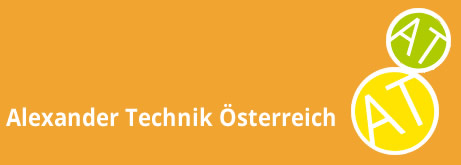Excerpt of the bylaws of the association "at.at - Alexander Technik Österreich"
§ 1 Name, Location and Scope
- The name of the organisation is at.at - Alexandertechnik Österreich.
- The organisation has its seat in Linz and operates in Austria.
- There is no intention to establish subsidiary organisations.
§2 Purpose
The F.M. Alexander Technique, named after its founder Frederick Matthias Alexander (1869- 1955) is an educational process based on a holistic view of humankind. The process aims to foster personal growth, development and ongoing improvement of use and functioning of the human organism.
Aims of the non profit organisation are:
- Promotion of and dissemination of information concerning the Alexander Technique as established by F.M. Alexander
- Development of the Alexander Technique
- Establishment of the Alexander Technique in the Austrian Public Health Service
- Support of students and qualified teachers of the Alexander Technique
- Establishment of and ensuring adherence to clear professional qualitative and ethical standards of practise for qualified Alexander Teachers in Austria.
§ 3 Means by which the organisation's purpose are to be pursued
- The organisation envisages achieving its purpose through ideational and material means as specified in Paragraph 2 and 3.
- Ideational means are:
a) events, presentations, journal articles and other publications, co-operation with media
b) information brochures and website
c) pure and applied research, establishment of a library, forums for discussion and exchange
d) liaison with and membership of national and international organisations for the Alexander Technique - The material resources required will be collected from a) Membership subscription
b) revenue from public and internal events
c) donations, collections, testaments and other transfers
d) grants
§ 4 Types of Membership
- There are regular, supporting and honorary members.
- Only persons who actively contribute to the organisation may become regular members. They are entitled to attend and to vote in the general meeting
- Supporting members are persons or legal entities who are able and willing to support the aims of the organisation.
- Honorary members are appointed by the general meeting in recognition of their special contribution in support of the organisation.


